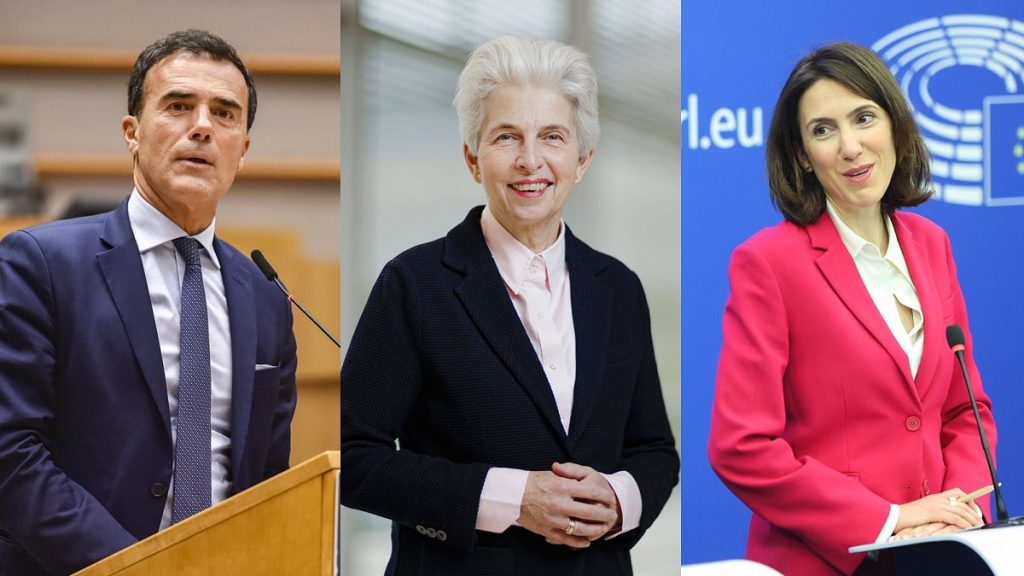European liberals have put forward a unique approach to the upcoming elections for the European Parliament. Rather than selecting one lead candidate, they have formed a team of three individuals to represent the liberal family in the EU-wide poll. This move challenges the traditional Spitzenkandidaten system and aims to give a voice to the three pillars of the liberal political family. The team, consisting of Marie-Agnes Strack-Zimmermann, Sandro Gozi, and Valérie Hayer, will defend a 10-point manifesto focusing on central liberal priorities such as reducing red tape, promoting competitiveness, and protecting personal freedoms.
The trio of liberal candidates represents a variety of political backgrounds within the European liberal family. Strack-Zimmermann, a defence expert from Germany, is considered the main face of the campaign and is known for her criticism of Russia and advocacy for increased military supplies to Ukraine. Gozi, from Italy, emphasized the importance of protecting civil rights and criticized countries like Hungary and the UK for their lack of adherence to European values. The candidates plan to participate in televised debates and promote a strong liberal voice in challenging times for Europe.
Renew Europe, the group that represents liberal MEPs in the European Parliament, is facing uncertain times as the political landscape shifts towards extreme-right viewpoints. A recent poll projects that Renew Europe may lose seats in the upcoming elections, potentially falling behind far-right groups like Identity and Democracy (ID) and European Conservatives and Reformists group (ECR). The potential inclusion of Fidesz, the Hungarian party led by Viktor Orbán, in ECR could further impact the seat projections and potentially weaken the position of centrist parties like Renew Europe.
The concerns about the European People’s Party (EPP) moving towards extreme-right talking points have also put pressure on centrist parties like Renew Europe. There are worries about a potential ideological convergence between the right and the far right, which could impact the cohesion of pro-European parties in the European Parliament. Upholding a “cordon sanitaire” and maintaining separation from the Eurosceptic movement is crucial for parties like Renew Europe, but the shifting political landscape poses challenges to this approach.
The liberal party is navigating a complex political environment where alliances and positions are constantly evolving. While maintaining a clear stance against extreme-right parties, liberal politicians in countries like Belgium, the Netherlands, France, and Germany have expressed skepticism about certain policies, such as the Green Deal and administrative burdens imposed on farmers and industry. The party’s approach is to stay united in opposition to the extremes and focus on promoting liberal ideals and priorities in the upcoming elections.
As the campaign for the European Parliament elections unfolds, liberal candidates are emphasizing the importance of a strong liberal voice in Europe. With a focus on reducing red tape, promoting competitiveness, and protecting personal freedoms, the team of three candidates aims to uphold liberal values and principles in the face of uncertainty and shifting political dynamics. The upcoming elections will be crucial in determining the future direction of the European Parliament and the role of liberal parties in shaping the political landscape of the EU.


